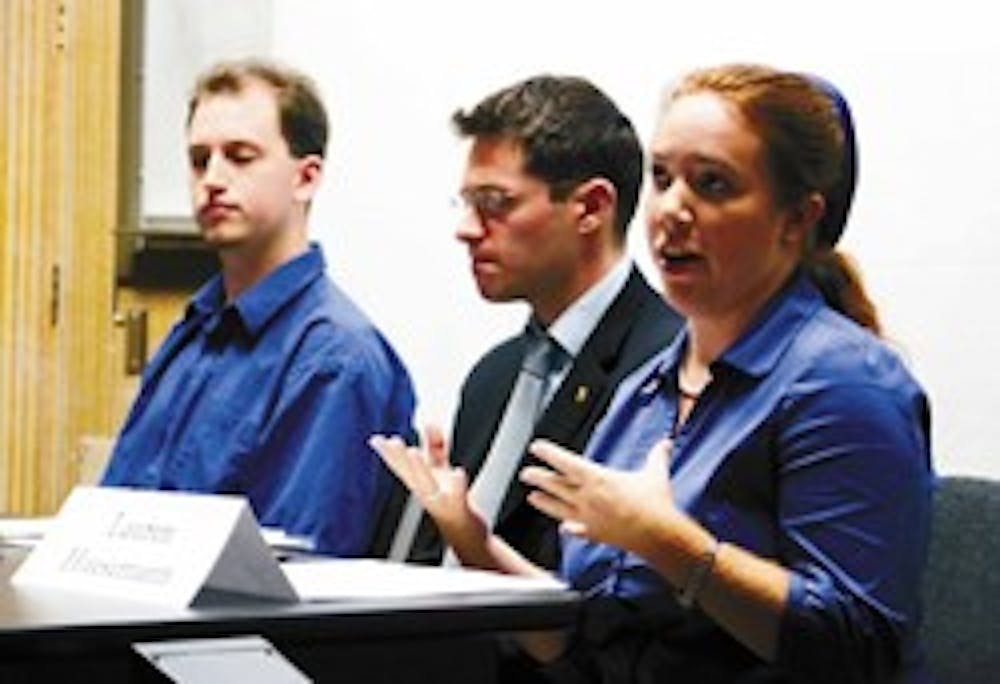by Caleb Fort
Daily Lobo
Jay Reidy said he's not sure whether UNM students know enough about world affairs.
"That's a hard generalization to make," he said. "I certainly think that everyone benefits from an awareness of what's going on in the world."
Reidy, the vice president of UNM's World Affairs Delegation, spoke at a lecture Wednesday sponsored by the International Studies Institute.
Get content from The Daily Lobo delivered to your inbox
The lecture was part of a series about globalization.
Other members of the delegation engaged in a panel discussion about the U.N. and terrorism.
Nick Engquist, a member of the American Civil Liberties Union, participated in the discussion.
It's important to have an international body to monitor human rights during war, he said.
"One of the biggest problems democracies face - the United States especially - is balancing public safety with civil rights," he said. "Independent states are going to have different standards than the international community."
John Smeltzer, a member of the delegation, agreed.
He said the United States making counterterrorist policies without the U.N. could create problems.
"I think we have to keep in mind that these state-specific approaches really create a divergence between us (the United States) and the U.N.," he said.
However, those approaches have benefits, said Lauren Huesemann, another member of the delegation.
The U.N.'s Counterterrorism Committee cannot fix specific problems, she said.
"Broad actions from the U.N. are not always effective. A blanket statement about immigration is not always effective and neither is military force," she said. "Independent states have made strides in the CTC's long-term goals that broad policies haven't."
The delegation is a student organization dedicated to studying the U.N.
Huesemann said the U.S. does not have an inherent right to lead antiterrorism efforts, she said.
"The United States may have more of a right to lead the negotiations in Afghanistan and Iraq," she said. "But, as far as the global mission against terrorism and militant groups, we are not the only ones with those problems."
Engquist said it is too late for the U.S. to give up its leadership in antiterrorist
operations. Because the U.S. has a good history of human rights, it should be able to rectify any abuses it commits, he said.
However, if the U.S. pulled out, there would be no guiding force, he said.
"I think if we were to disavow ourselves from the war on terror, it would lose all of its moral clarity," he said.
Melissa Bokovoy, the director of the institute, said the lecture series provides an important service.
"The real goal is to bring the globe to UNM," she said. "The University is a place for the exchange of ideas on all levels."
Christine Sauer, a UNM professor who organized the event, agreed.
"We're trying to get people to think about these issues and question the status quo," she said.
The series continues today, at 4 p.m. and 7 p.m. in Woodward Hall, Room 147. The topics are global health and the impact of globalization on Latin America.






